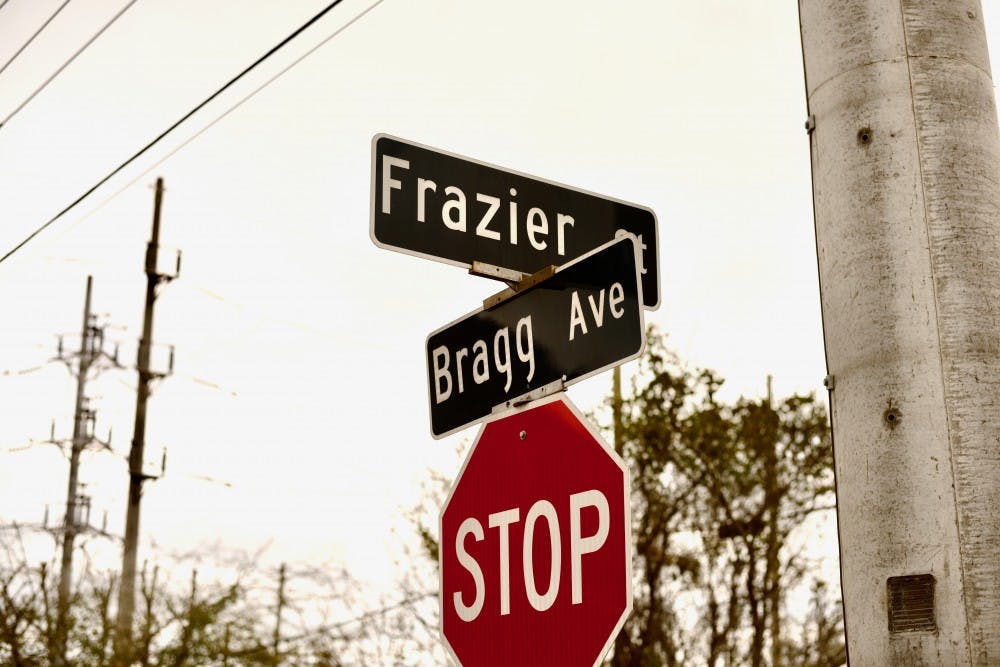As Auburn’s population of students and residents grows, so does its development.
This increased development has been expanding into some of Auburn’s most established communities.
These communities have been home to some residents and families for generations. And in some communities, longtime black residents are being displaced by new student housing developments, higher property costs and higher rent.
This is gentrification.
READ MORE: What happens when student housing forces African-Americans from their homes
In Northwest Auburn, development has passed the point of encroachment and is now forcing residents out of their homes.
Developers are buying and tearing down homes to make room for more profitable student housing, or they are buying and building student housing on plots of land in these residential neighborhoods.
While buying and building on these empty plots of land may seem harmless, in reality, it drives up the cost of living, the monetary value of the land and, as a result, property taxes and rent for the rest of the neighborhood.
Moreover, the new developments bring in new residents and, more often than not, that means displacement for long-term residents.
While many historically white neighborhoods have faced unwanted student development, Northwest Auburn is facing more serious difficulties that amount to more than just an aesthetic nuisance.
Simply put, these developments are forcing some of Auburn’s most marginalized communities to relocate from the neighborhoods they have called home for decades.
This is a textbook case of gentrification. Upper-middle-class students who can afford this new housing are taking over these neighborhoods, or at the very least taking control of these neighborhoods’ future.
But why?
One reason is that student housing is more profitable. Landlords can charge students artificially inflated rent, or multiple students pay exorbitant prices as part of individual leases to live in one dwelling.
Developers are currently constructing houses on Frazier Street that boast a five-bedroom, five-bathroom floor plan.
These floor plans and their prices are obviously intended to house five students, and the signage surrounding the construction site says as much.
But the developers billed these residences as family housing to the city of Auburn.
This allowed these developments to fly under the radar and skirt the edge of Auburn’s zoning laws and ordinances, which aren’t particularly protective of the Northwest Auburn neighborhood to begin with.
More than five unrelated people can’t live in one residence in much of this area. But don’t be fooled. That’s a far more lenient zoning rule than those in historic, majority-white neighborhoods. A two-person unrelated occupancy rule along Payne Street and Dumas Drive in East Auburn caused uproar last year when groups of students were evicted from their housing for violating the rule.
In both cases, landlords and developers didn’t care about much else besides milking students for rent money and, as a result, displacing marginalized families.
Students can be blamed partly for moving into these homes and increasing demand, but it does not all fall onto the shoulders of students.
Even with massive new apartment buildings in the downtown area, Auburn has a shortage of student housing, a city-commissioned report found as much.
Markets are not perfect, but the demand for new housing developments affirms that fact.
In this aspect, the University has failed.
The University has failed to provide enough on-campus housing for students or on-campus housing that is affordable, even by Auburn’s high-rent standards.
The cost of staying in an on-campus dorm is relatively high. And with most dorms only having one full kitchen per floor or, worse yet, one kitchen for the entire dorm, the cost of living and eating on campus can be expensive.
It seems as though the University is doing very little to ensure that living for students is affordable.
There is not a single dorm that has full kitchens in each suite, and university officials are not regularly sitting in any of the city council meetings advocating for the best interests of students and student housing.
What would have been prime real estate for future dorms has been taken by developers and turned into high-cost, high-occupancy apartment buildings.
So, students who look for more cost-effective housing are moving farther out, into family and residential neighborhoods.
Students are duped into believing they are getting a “deal” on rent, but are being crammed into houses five at a time, while some landlord is getting five times whatever that “deal” on rent is.
Auburn students have almost no alternative than to move in these new housing developments.
The University is not working with the city to zone the city in a way that benefits both longtime residents and students. That’s caused a mindset that only spurs competition between students and residents.
Students and residents shouldn’t be adversaries; they should be on the same team.
But to do this, we need to acknowledge a few realities.
White middle- and upper-class residents of Auburn have been relatively successful in preventing student housing in their neighborhoods, though a few have sneaked in.
While city officials have been slow, at times, to respond to complaints on the part of middle- and upper-class residents in Auburn, they have moved at a snail’s pace in addressing the concerns of residents in Northwest Auburn.
But by preventing student-housing in some areas that are close to campus, zoning rules are thrusting new development into the minority neighborhoods of the city where zoning laws are still somewhat lenient on student-oriented housing, where the commute to campus is still pretty short and where residents likely do not have the means or influence to protect themselves from such developments.
In this aspect, the city has failed.
It is the city’s job to protect these residents’ way of life.
Instead, the city has allowed developers to manipulate and scheme their way into some of Auburn’s most established neighborhoods.
Students are not going away any time soon — that’s a reality some city politicians and activists are eager to ignore.
While students are only here for four years at a time, there’s another, probably larger class of students ready to take their place.
Growth of the University and the city are inevitable — and a good thing — but it must be done in a way that protects everyone in the city, not just those who have the time and the influence to sway city officials.
Ordinances must be put in place that protect both students’ and residents’ best interests.
The University must do more to protect the community in which it resides, which means ensuring students have housing that does not negatively affect the Auburn community.
It is time for the city and the University to work together to find a solution.
The Plainsman welcomes responses to our editorials and opinion pieces. Please see our letter to the editor policies for information on how to write a response.
Do you like this story? The Plainsman doesn't accept money from tuition or student fees, and we don't charge a subscription fee. But you can donate to support The Plainsman.
The opinions of The Auburn Plainsman staff are restricted to these pages.
This editorial is the majority opinion of the Editorial Board and is the official opinion of the newspaper.
The opinions expressed in columns and letters represent the views and opinions of their individual authors.
These opinions do not necessarily reflect the Auburn University student body, faculty, administration or Board of Trustees.
The Auburn Plainsman welcomes letters from students, as well as faculty, administrators, alumni and those not affiliated with the University.





